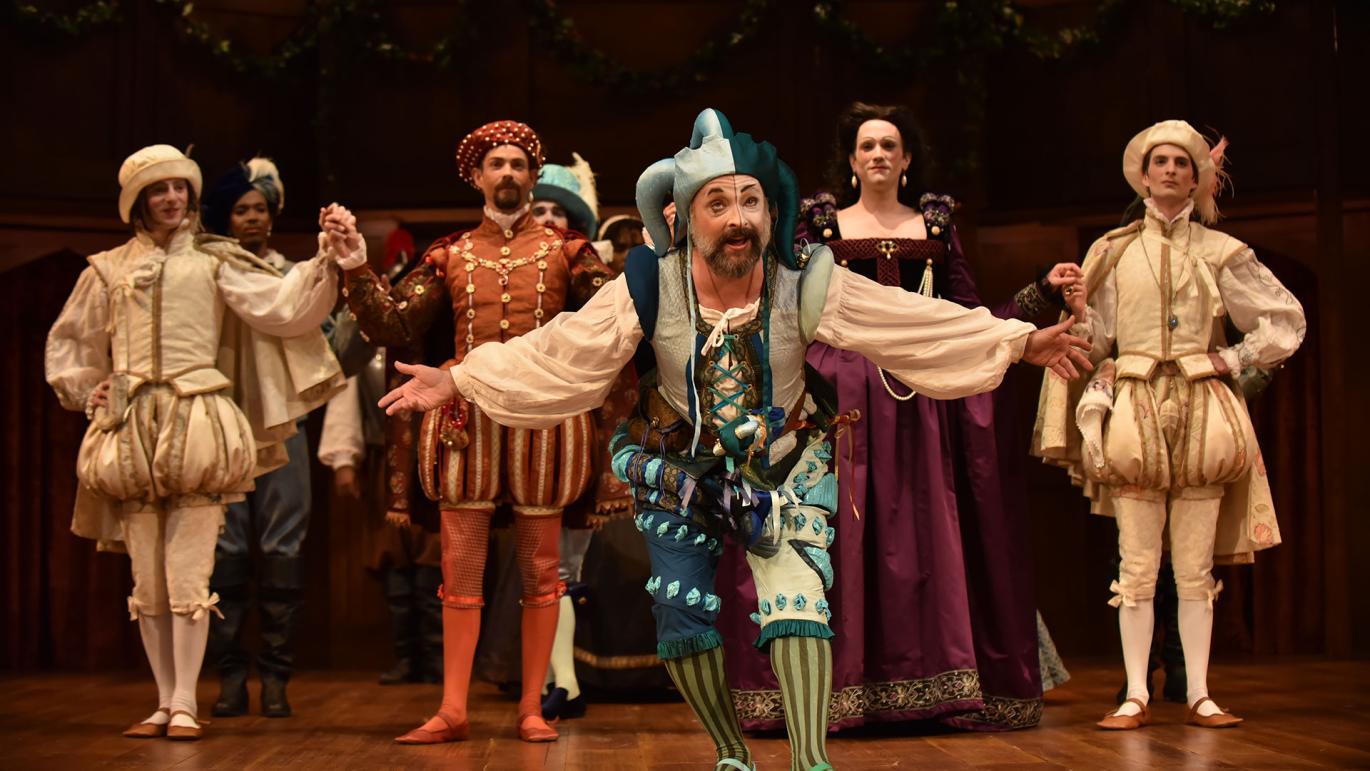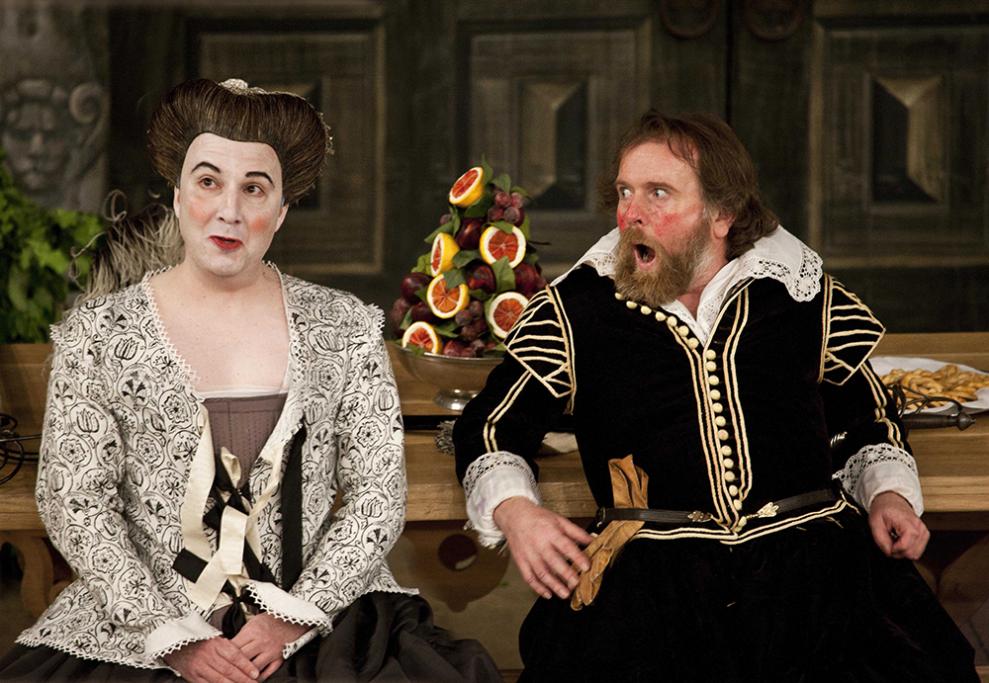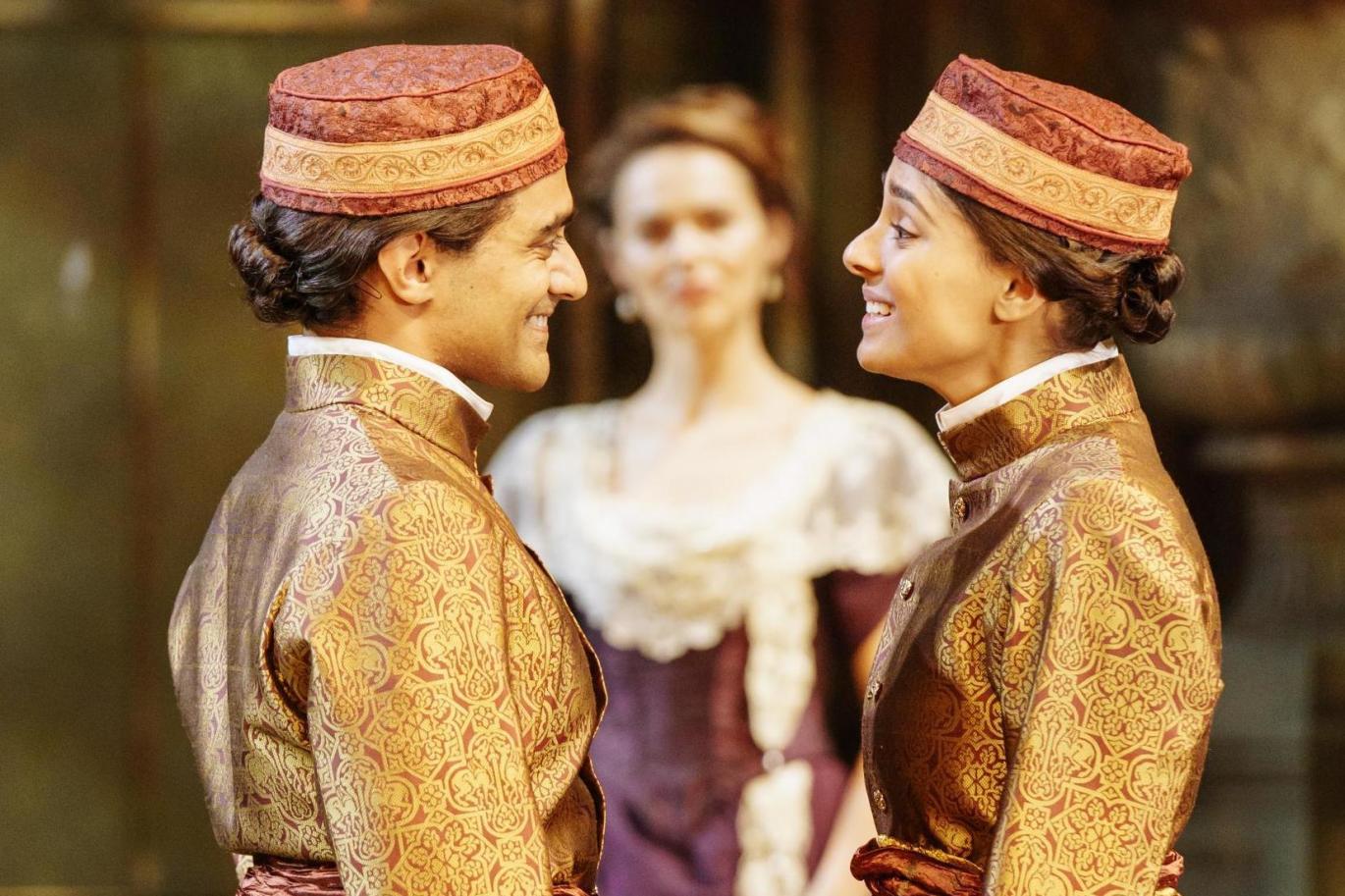What is the Role of Deception and Disguise in Twelfth Night?
In the realm of literature, deception and disguise have long been employed as powerful tools to drive plots, create humor, and explore profound themes. William Shakespeare's "Twelfth Night," a timeless romantic comedy, stands as a testament to the significance of these literary devices. This article delves into the multifaceted role of deception and disguise in "Twelfth Night," examining their impact on the play's plot, humor, and thematic exploration.

Deception And Disguise As Plot Devices
Deception and disguise serve as essential plot devices in "Twelfth Night," propelling the narrative forward and creating a series of mistaken identities, misunderstandings, and romantic complications. Shakespeare introduces Viola, a young woman shipwrecked in Illyria, who disguises herself as a man named Cesario to serve Duke Orsino. This initial act of deception sets the stage for a cascade of mistaken identities and romantic entanglements.
- Viola's disguise as Cesario leads to her becoming a trusted confidant of Duke Orsino, who falls in love with Olivia, a wealthy countess.
- Olivia, in turn, mistakes Cesario (Viola in disguise) for a man and falls in love with him, creating a hilarious love triangle.
- Sebastian, Viola's twin brother, arrives in Illyria, further complicating the situation as he is mistaken for Cesario, adding to the confusion and mistaken identities.
Deception And Disguise For Humorous Effect
Shakespeare masterfully employs deception and disguise to generate humorous situations and misunderstandings in "Twelfth Night." The play is replete with scenes where characters' mistaken identities lead to comical blunders and witty exchanges.
- Sir Andrew Aguecheek, a foolish knight, repeatedly mistakes Cesario (Viola in disguise) for a man and attempts to woo him, creating a series of hilarious misunderstandings.
- Malvolio, Olivia's pompous steward, falls victim to a clever prank orchestrated by Maria, Sir Toby Belch, and Sir Andrew. They convince Malvolio that Olivia is in love with him, leading to a series of comical scenes where Malvolio behaves in a ridiculous manner.
- The climactic scene of the play, where all the mistaken identities are resolved, is a riot of laughter as characters realize the truth and embrace the absurdity of the situations they have been caught in.
Deception And Disguise To Explore Themes

Beyond their role in driving the plot and creating humor, deception and disguise serve as vehicles for exploring profound themes in "Twelfth Night." Shakespeare delves into the complexities of love, identity, and self-discovery through the characters' deceptive actions and mistaken identities.
- Love: Deception and disguise challenge conventional notions of love and romance. Viola's disguise as Cesario allows her to experience love from both Duke Orsino and Olivia, blurring the boundaries of gender and societal expectations.
- Identity: The play explores the fluidity and malleability of identity. Characters adopt different identities, blurring the lines between reality and illusion. This exploration of identity raises questions about the nature of self and the roles we play in society.
- Self-Discovery: Through their deceptive actions, characters embark on journeys of self-discovery. Viola's disguise as Cesario allows her to break free from societal constraints and explore her own desires and aspirations.
In "Twelfth Night," deception and disguise play a multifaceted role, driving the plot, generating humor, and exploring profound themes of love, identity, and self-discovery. Shakespeare's skillful use of these literary devices creates a delightful and thought-provoking play that continues to captivate audiences centuries after its creation.

The intricate web of deception and disguise woven throughout "Twelfth Night" serves as a reminder of the complexities of human nature and the fluidity of identity. The play invites us to question our assumptions about love, identity, and the roles we play in society, leaving us with a deeper understanding of ourselves and the world around us.
YesNo

Leave a Reply